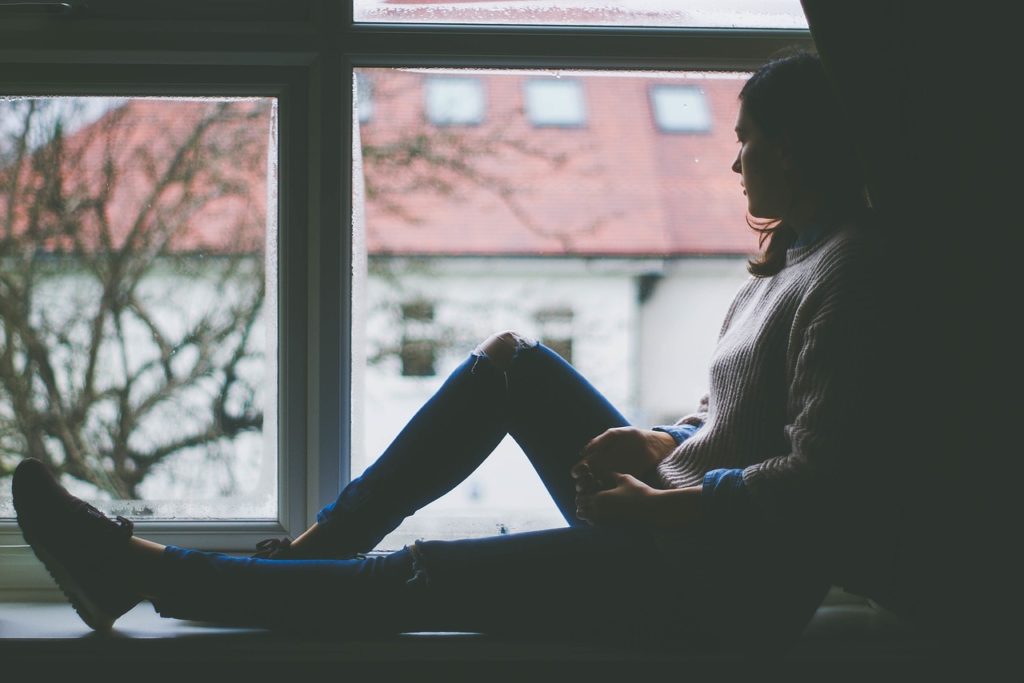- Calls to this hotline are currently being directed to Within Health, Fay or Eating Disorder Solutions
- Representatives are standing by 24/7 to help answer your questions
- All calls are confidential and HIPAA compliant
- There is no obligation or cost to call
- Eating Disorder Hope does not receive any commissions or fees dependent upon which provider you select
- Additional treatment providers are located on our directory or samhsa.gov
Pandemic and Returning to Hybrid School Dealing with Social Anxiety

Of all of the adjustments made during the pandemic, one that continues to be incredibly concerning is the adaptation of children and school symptoms to quarantine, social distancing, and, now, hybrid schooling. Close to two-thirds of district leaders report their schools are doing hybrid schooling, which involves a combination of in-person and virtual learning, which varies from school-to-school [1].
Some may have teachers in the classroom with children learning virtually at home. Other schools continue to have all individuals virtual teaching and learning from home.
There is also an increase of children returning to their classrooms since the beginning of 2021, with parents deciding whether their child will remain virtual or attend school. This means teachers are educating those students physically in their classrooms as well as those logging in from home.
This places a great deal of strain on children, parents, and teachers. For those whose children are attending school in-person again, social anxiety has likely taken on a different meaning in relation to before the pandemic.
Separation from Parents
Human beings, whether child or adult, are adaptable, and many children had become accustomed to being around their parents every day during the quarantine. Returning to school means being separated from their parents once again, which may be a frightening and overwhelming transition.
Child Mind Institute clinical psychologist Jennifer Louie, Ph.D., noted that even those children that had “comfortably adjusted to being in school before the pandemic are finding it stressful to be separated now [2].” Have empathy for the fear they are experiencing in this transition and do not expect them to have the same behaviors and abilities they had going to school pre-pandemic. After all, you are likely very changed as well.
Adjusting to Socializing After the Pandemic
 Many of these children and teachers have not been around more than a handful of people, if that, since quarantine began. This isolation likely challenged their ability to socialize appropriately, making interacting with others anxiety-provoking. For children that struggle with being introverted and shy, this adds another layer of discomfort that will likely be stressful to overcome.
Many of these children and teachers have not been around more than a handful of people, if that, since quarantine began. This isolation likely challenged their ability to socialize appropriately, making interacting with others anxiety-provoking. For children that struggle with being introverted and shy, this adds another layer of discomfort that will likely be stressful to overcome.
Fear of COVID
Ultimately, a big fear in interacting with others again involves the reason isolation began in the first place – COVID-19. Again, Jennifer Louie, Ph.D., contributes that “there is the added fear that other people are not as safe as we thought they were [2].”
Louie also states, “There’s just anxiety in the air, and I think kids feel that. I think they are wondering: Are we sure it’s safe to go back? And are other people safe? And is it safe to touch this [2]?” Everyone in the world is coping with this fear right now as services begin to reopen.
With many individuals not following social distancing or mask protocols throughout the year 2020, many learned that it is not a given that others are being as cautious as you are. This makes it scary to interact with them or have your children interact with them.
Children are resilient. However, this does not mean they are not affected by what they see and hear happening in the world.
It will take time for these young minds to adjust to a new routine again. Therefore, support and comfort them by showing patience and support for their adjustment.
Resources
[1] Lieberman, M. (2020). How hybrid learning is (and is not) working during COVID-19: 6 case studies. Education Week. Retrieved from https://www.edweek.org/leadership/how-hybrid-learning-is-and-is-not-working-during-covid-19-6-case-studies/2020/11. [2] Miller, C. (2020). Back-to-school anxiety during COVID. Child Mind Institute. Retrieved from https://childmind.org/article/back-to-school-anxiety-during-covid/.About the Author:
 Margot Rittenhouse, MS, PLPC, NCC is a therapist who is passionate about providing mental health support to all in need and has worked with clients with substance abuse issues, eating disorders, domestic violence victims, and offenders, and severely mentally ill youth.
Margot Rittenhouse, MS, PLPC, NCC is a therapist who is passionate about providing mental health support to all in need and has worked with clients with substance abuse issues, eating disorders, domestic violence victims, and offenders, and severely mentally ill youth.
As a freelance writer for Eating Disorder Hope and Addiction Hope and a mentor with MentorConnect, Margot is a passionate eating disorder advocate, committed to de-stigmatizing these illnesses while showing support for those struggling through mentoring, writing, and volunteering. Margot has a Master’s of Science in Clinical Mental Health Counseling from Johns Hopkins University.
The opinions and views of our guest contributors are shared to provide a broad perspective on eating disorders. These are not necessarily the views of Eating Disorder Hope, but an effort to offer a discussion of various issues by different concerned individuals.
We at Eating Disorder Hope understand that eating disorders result from a combination of environmental and genetic factors. If you or a loved one are suffering from an eating disorder, please know that there is hope for you, and seek immediate professional help.
Published March 8, 2021, on EatingDisorderHope.com
Reviewed & Approved on March 8, 2021, by Jacquelyn Ekern MS, LPC

The EatingDisorderHope.com editorial team comprises experienced writers, editors, and medical reviewers specializing in eating disorders, treatment, and mental and behavioral health.

